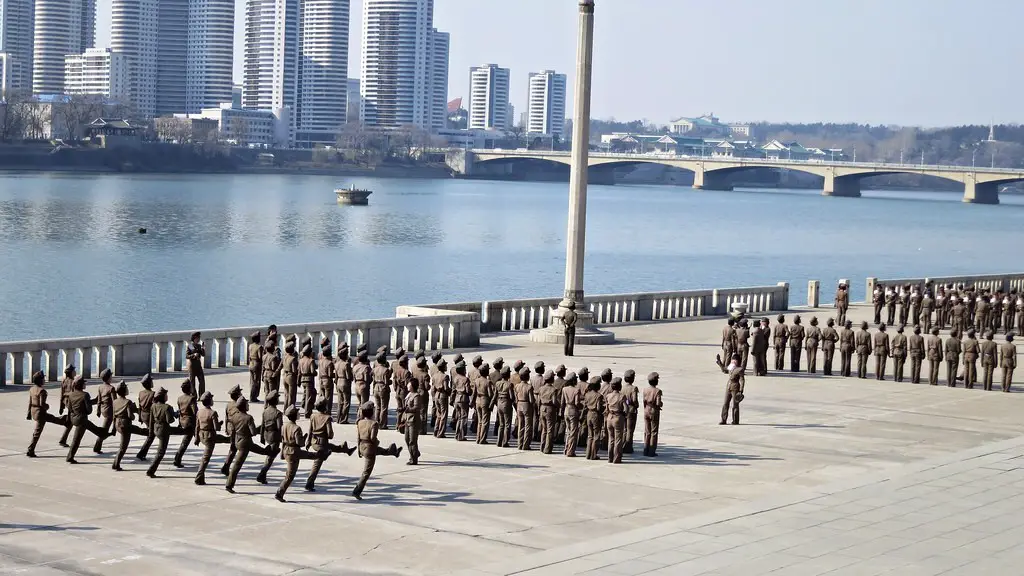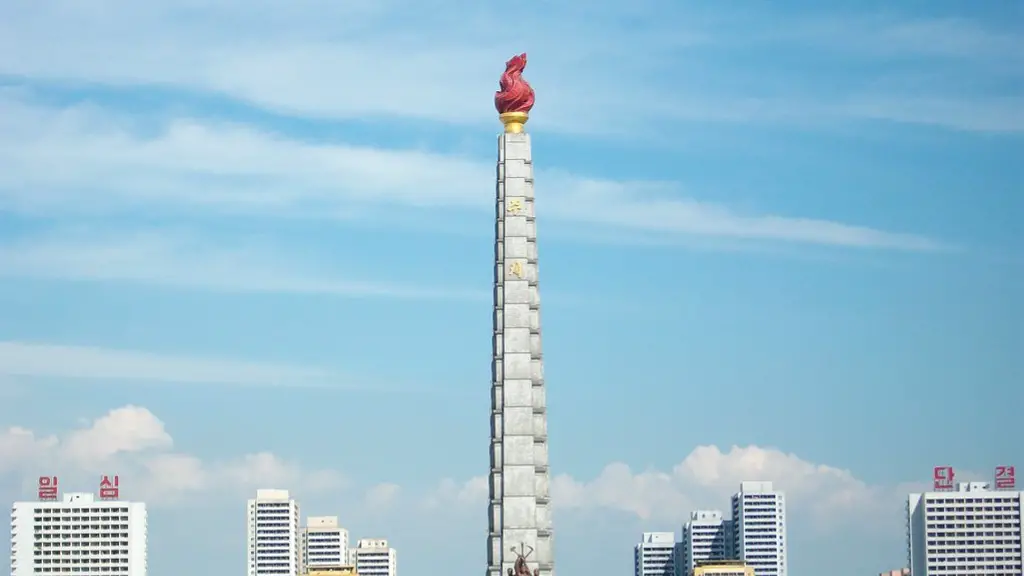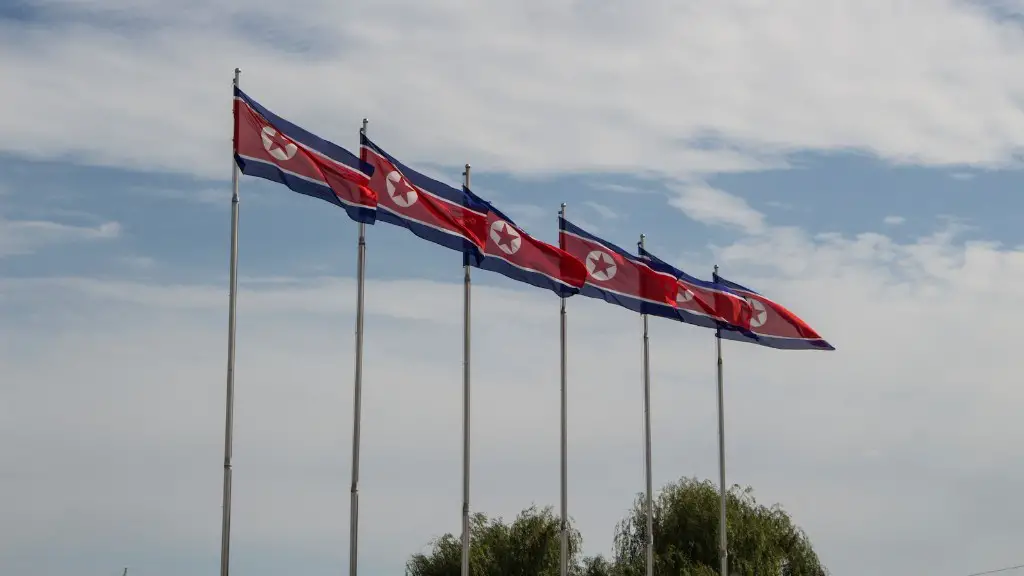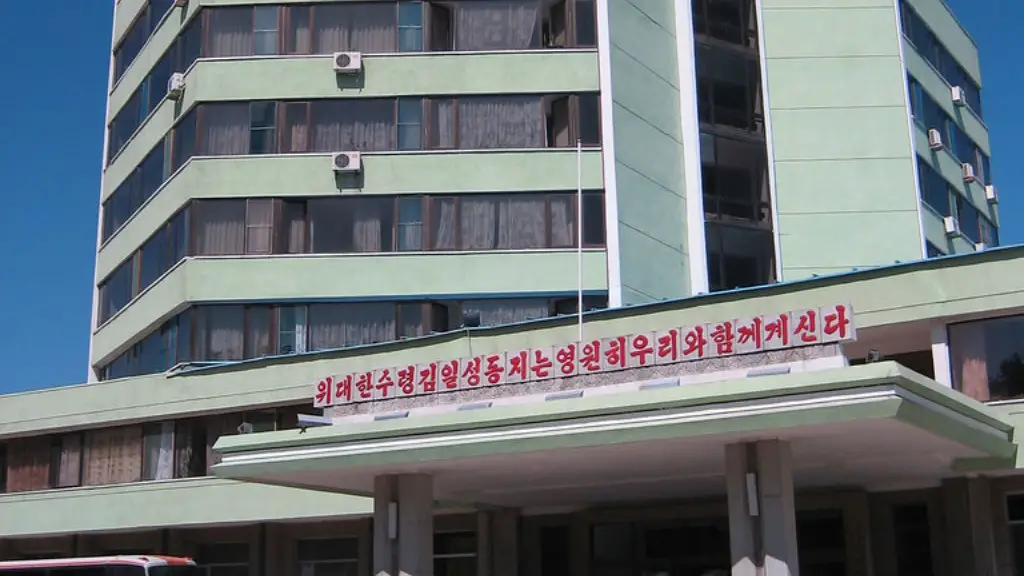The Origin of North Korea
North Korea is a country located in East Asia. It is bordered by China and Russia to the north and South Korea to the south. The official name of the country is the Democratic People’s Republic of Korea and it was established in 1948. The state was formed after the Korean Peninsula was liberated from the Japanese colonial rule in 1945. Before this, the Korean Peninsula was a unified state for centuries and was annexed by Japan in 1910. North Korea’s current leader is Supreme Leader Kim Jong-un, who assumed power after his father, Kim Jong-il, died in 2011.
Economic Outlook
North Korea has a relatively isolated economy, which has been classified by the United Nations as one of the poorest in the world. The country is largely state-controlled and centrally-planned, and has a heavily-regulated market economy. The country relies heavily on trade with China to the north and is one of the few countries in the world that are not part of the World Trade Organization (WTO). Due to heavy international sanctions imposed upon it, North Korea has suffered from chronic shortages of food and other essentials.
Foreign Relations
North Korea has historically had very strained relations with its neighbors and the international community. The country is one of the few nations in the world not to recognize South Korea as a legitimate state. North Korea is known to engage in nuclear weapons testing programs, which have been heavily condemned by the United Nations. In the past, North Korea has been accused of numerous human rights violations, including those against its own citizens.
Political Structure
North Korea operates under a single-party system and is governed by the Workers’ Party of Korea (WPK). The party is led by the Supreme Leader, currently Kim Jong-un. All other government officials, including the President and Prime Minister, are appointed by the party. Citizens of North Korea are unable to publicly criticize the government or the party. The country’s media is strictly monitored and censored and most citizens only receive information from state-run sources.
Military and Security
North Korea has one of the largest militaries in the world, with an estimated 1.2 million active personnel. The country’s armed forces are made up of the Korean People’s Army (KPA), the Korean People’s Air Force (KPAF), and the Korean People’s Navy (KPN). The KPA is equipped with a large number of nuclear weapons and has been involved in several military engagements in the past, most notably the Korean War. The KPA also maintains an extensive system of military checkpoints and surveillance systems to monitor the population.
Cultural Aspects
North Korea has a very distinct culture with its own language, religion, and values. The traditional religion of the country is known as Chondoism and it has heavily influenced many aspects of North Korean culture and society. Music, literature, and art forms are heavily promoted by the state and are heavily influenced by the traditional culture of the region. Soccer and weightlifting are very popular sports in the country and are both heavily promoted by the state.
Capitalism and Reforms
In recent years, North Korea has started to make some moves towards capitalism and economic reform. Private markets and farms have been allowed to operate and there is a limited amount of foreign investment in the country. North Korea has also started to open up its markets to international trade, although the country is still heavily reliant on its neighbor, China. In 2018, North Korea signed a denuclearization treaty with the United States, although it remains to be seen how effective this will be.
Health and Education System
The health and education systems in North Korea are heavily underfunded, and scarce resources are focused mainly in the cities. The country has struggled to provide enough resources to rural areas and has a high dropout rate of students in rural schools. Healthcare in North Korea is largely provided by the state and is free of charge. However, many basic medicines and treatments are not available and citizens must purchase these from private companies.
Women’s Rights
North Korea has a heavily patriarchal society and women’s rights are largely not respected. Despite the fact that women make up almost half of the population, they occupy only 15 percent of the country’s parliament. Women are underrepresented in leadership positions in the government and in business and are not afforded the same opportunities as men. Domestic violence is still rampant in the country as well and there is no legislation in place to combat it.
Travel
Travel to North Korea is extremely limited and is heavily regulated by the state. Citizens of North Korea are not allowed to travel outside of the country without permission from the government and a valid re-entry visa. As a result, many citizens will never get the chance to see the world beyond the country’s border. There are also restrictions on what foreign citizens can visit in North Korea, with only certain religious sites, museums, and nature reserves being open for visitors.
Social Media and Internet
In North Korea, access to the internet and social media is extremely limited. Most citizens do not have access to the internet and those who do have access only have access to state-run websites and social media accounts. There is no access to western social media networks and there is no freedom of speech on any of the websites the country operates.
Human Rights
North Korea is heavily criticized for its approach to human rights and is considered by international observers to be one of the worst offenders. Citizens of the country are not afforded the same basic rights and liberties as those in other parts of the world, including the rights to free speech, freedom of religion, and freedom of assembly. The government’s strict censorship laws also severely limit citizens from accessing information from the outside world.



